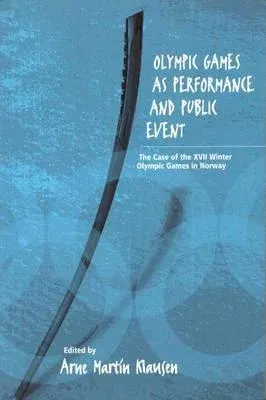Olympic Games as Performance and Public Event: The Case of the XVII Winter Olympic Games in NorwayHardcover, 1 September 1999

Qty
1
Turbo
Ships in 2 - 3 days
In Stock
Free Delivery
Cash on Delivery
15 Days
Free Returns
Secure Checkout

Print Length
272 pages
Language
English
Publisher
Berghahn Books
Date Published
1 Sep 1999
ISBN-10
1571817069
ISBN-13
9781571817068
Description
Product Details
Book Format:
Hardcover
Country of Origin:
US
Date Published:
1 September 1999
Dimensions:
21.59 x
13.97 x
1.42 cm
ISBN-10:
1571817069
ISBN-13:
9781571817068
Language:
English
Location:
New York, NY
Pages:
272
Publisher:
Weight:
426.38 gm